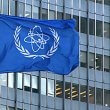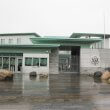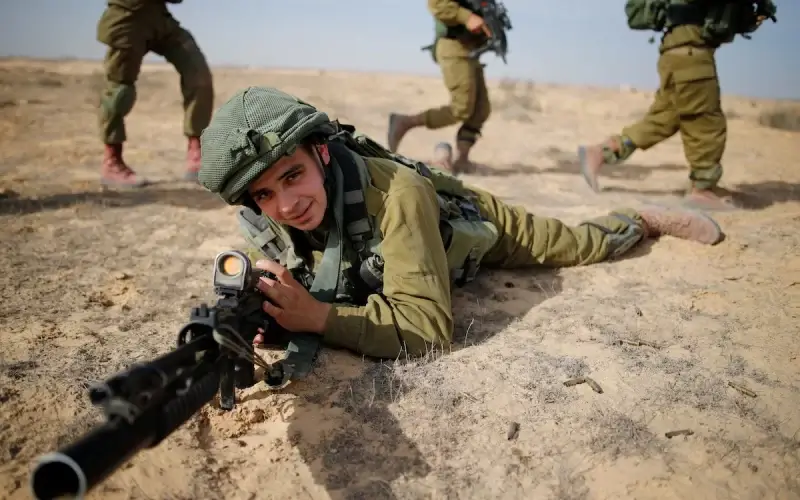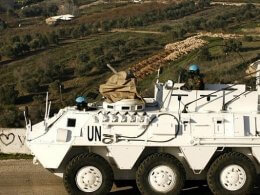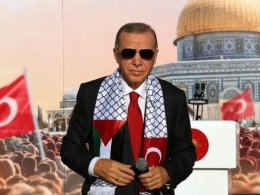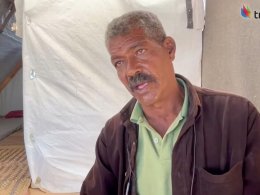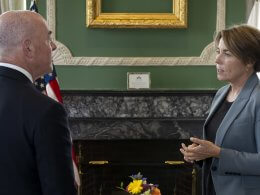Many young Arab men and women (yes! you read that correctly) voluntarily serve in the Israel Defense Forces (IDF) to defend and even sacrifice their lives for the State of Israel.
Earlier this month, Saudi-produced current affairs magazine, Al Majalla, ran an exclusive feature honoring a number of Arab Israelis who serve in the IDF.
While Israeli law does not force Israel’s Arab Muslims, Christians or Bedouins to join the IDF, the past few years have witnessed a steady increase of young men and women from Israel’s Arab society joining the IDF compared to a decade ago.
“It’s an honor, to hold in one arm the assault rifle and on the other arm the holy Koran, to defend my homeland, Israel,” young sergeant Emad proudly told Al Majalla. The London-based, digital political news journal “brings the Arab World into focus for its international readership,” according to its website.
The publication is available online in English, Arabic and Persian.
Mainstream media presents the Israeli army from one perspective, the writer explained. As a result, most people believe the IDF is primarily Jewish, which was true when it first began. However, after Israel declared its independence in 1948, then-Prime Minister David Ben-Gurion, decided to establish a singlea nd unified armed force loyal to the government of the State of Israel made up of several armed Jewish defense organizations, such as the Haganah, the Palmach, Lehi and Irgun. And so, the IDF was born.
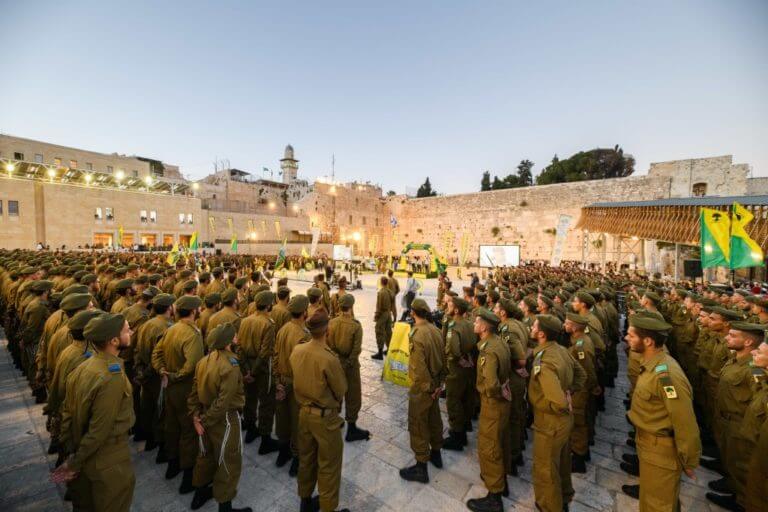
Israeli Arab troops during ceremony at the Western Wall in Jerusalem. (Photo: IDF Spokesperson’s Unit)
Over time, the IDF has evolved and today represents the whole nation in what the magazine article dubbed “the people’s army:” Israeli Jews, Druze, Muslims, Arabs, Bedouins and Christians serve side-by-side, brothers-in-arms. In fact, today statistics show the number of Arab Israeli military draftees has been on the rise for the past few years.
An unnamed senior IDF official told Al Majalla that he leads a unit in charge of the inclusion for minorities and different populations in the Israeli military.
“Our unit doesn’t just deal with recruitment but also is responsible for liaising between the military and the minority groups who serve in it. We ensure that each recruit is supported in terms of wellbeing and given the same professional progression like any other new enlistee,” he said, adding that his units’ “mission is to enlist as many Israeli Arabs as we can.”
Within the Bedouin sector, he explained, the IDF is annually managing to recruit between 450-500 soldiers each year.
The IDF’s highest number of volunteers comes from Israel’s Arabic-speaking Druze minority of about 150,000. The Druze make up roughly 2% of Israel’s total population, mostly living in the North. On May 5, Israeli President Isaac Herzog hosted Israel’s annual Independence Day Ceremony at his official residence. The ceremony was to honor and hand out ‘Commendations of Excellence Service’ to 120 IDF soldiers and officers from the Druze community.
“You are our true pride. I salute you. I have read your stories. I was moved by your stories. Truly, by each and every one. You are here, thanks to who you are, and thanks to who we are — thanks to you…I extend the same gratitude to you, dear parents and families. We are proud of your children, and we are excited together with you,” Herzog said during his speech.
Druze soldier Anas Safedi was one of the soldiers honored in front of a number of VIP guests which included then-Prime Minister Naftali Bennett, Defense Minister Benny Gantz and IDF Chief of Staff Aviv Kochavi.
“I was brought up on Islamic values, and those values taught me that loyalty towards one’s homeland is sacred and an obligation. This is why I carry my weapon to defend Israel,” Safedi said.
Another Muslim Druze soldier, Ella Waweya, joined the IDF in 2013 and completed her training as an exemplary soldier. In 2015, she received the President’s Outstanding Medal and in September 2021, Ella was promoted to the Major in the IDF, the first Arab Muslim woman to receive this rank. Today, Waweya proudly bears her rank in the army.
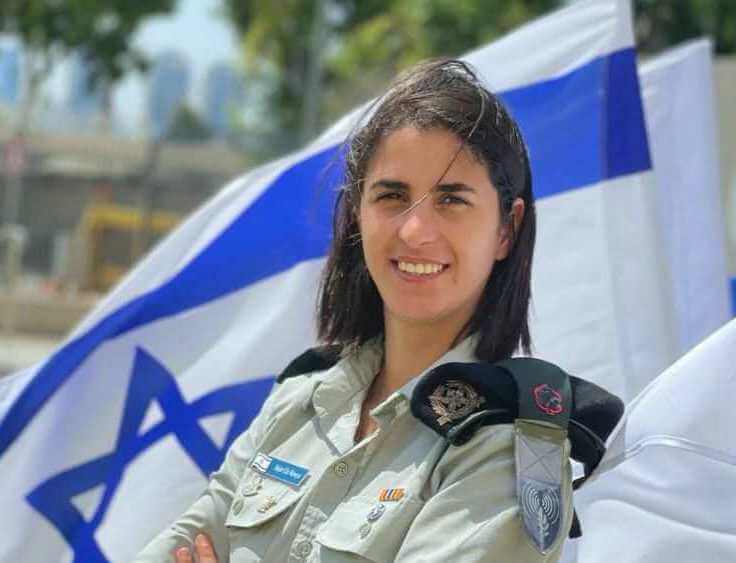
IDF Major Ella Waweya (Photo: Wikimedia Commons)
However, it was not always this way.
“For the first 18 months, I kept it secret that I joined the army, but during home leave on a weekend my mother came into my room without knocking and found my IDF uniform. She looked at the uniform, turned her gaze to me and began to cry, but quietly so that no one would hear her.”
It took Waweya’s father over a year to forgive her for joining the IDF, but eventually he accepted her choice and was even proud of his daughter’s achievement.
As deputy head of the IDF’s Arab Communications Department, it is Waweya’s responsibility to address hundreds of millions of Arabic speakers in the Middle East and around the world. On social media within Arab circles she is known as “Captain Ella,” the face and voice of the IDF.
“The Israeli flag gives me a sense of excitement, belonging and love,” she said proudly.
“What are people looking for? Equality between an Arab and a Jew, a Bedouin, a Druze and a Christian. The path to equality passes through the IDF, the Ministry of Defense, and the police. That’s how it starts,” said Waweya.
Remarkably, the IDF gained more Arab volunteer recruits during the COVID pandemic, particularly because the army’s reputation improved among the Arab public in Israel.
“During the pandemic, IDF soldiers were deployed to deliver food and medicine to elderly and sick people. They took part in the coronavirus awareness campaigns and later helped with setting up vaccine centers and so on. The IDF efforts were greatly appreciated by the Muslim citizens living in those villages and towns. You can say the fear factor was broken, as people were able to see with their own eyes how tirelessly the IDF was working to look after all residents of Israel,” the senior official explained.
Even so, joinin in the IDF remains controversial in some Arab Israeli communities. Critics claim that enlisting Arabs is ‘politically motivated’ because the IDF’s goal is to divide the Arabs of Israel.
Arab Israeli Knesset Member Hanin Zoabie claimed that “90% of the Arabs who serve in the Israeli army don’t have equality with Israelis. Israel does not need them to protect its security, it’s a political issue – first to divide and rule.”
However, Israeli Ministry of Foreign Affairs spokesperson, Hassan Kaabia – an Israeli Arab and a former IDF lieutenant-colonel – countered Zoabie.
“The IDF is the only institution where there is no discrimination and there is total equality and inclusion. It is not true that they are joining because of economic factors. The majority of Israeli Arabs who join the army are doing it because of one reason and that is they want to be part of the state. They want to integrate in the civil society and also get better career opportunities, as most companies prefer candidates who done their military service,” she said.
The unnamed senior official added, “Israel is for all Israelis – Jews, Muslims, Bedouins, Christians, Druze and so on.
“The IDF is here to serve all the people of Israel. We see the IDF as a home, a family where everyone should be made to feel welcomed and included. Israel is a multi-faith and cultural society with many minorities. The IDF can be a great platform to connect all of us to our homeland, Israel.”



